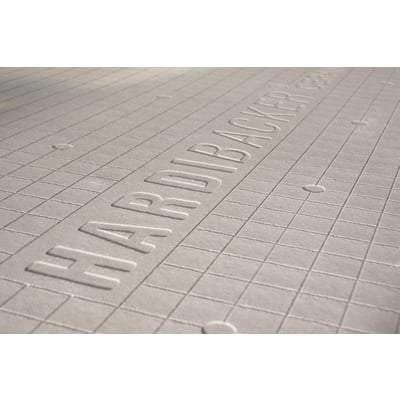
The Best Mortar for Shower Floors: A Comprehensive Guide
When it comes to creating a durable and waterproof shower floor, choosing the right mortar is crucial. In the UK, there are several high-quality options available, each with its own strengths and ideal applications. This guide will help you navigate the choices and select the best mortar for your shower floor project.
Types of Mortar for Shower Floors
1. Polymer-Modified Thinset Mortar
Polymer-modified thinset mortar is one of the most popular choices for shower floor installations. It offers excellent adhesion and water resistance, making it ideal for wet areas.
- Enhanced flexibility
- Improved bond strength
- Excellent water resistance
2. Epoxy Mortar
Epoxy mortar is a high-performance option that provides superior water resistance and chemical resistance.
- Exceptional waterproofing properties
- High durability
- Resistant to stains and chemicals
3. Rapid-Setting Mortar
For projects that require quick completion, rapid-setting mortar is an excellent choice. It allows for faster tile installation and grouting.
- Quick setting time (typically 2-4 hours)
- Allows for same-day grouting
- Ideal for time-sensitive projects
Pair rapid-setting mortar with a reliable tile backing board like James Hardie Hardiebacker 500 Tile Backing Board. This ensures proper moisture resistance and a strong foundation for your shower floor. Check out the product:

Factors to Consider When Choosing Shower Floor Mortar
- Substrate Condition: Ensure the mortar is compatible with your shower floor's substrate material.
- Tile Type: Different tiles may require specific mortars for optimal adhesion.
- Water Exposure: Consider the level of water exposure the shower floor will experience.
- Installation Time: If you need a quick turnaround, opt for rapid-setting mortars.
- Budget: While high-performance mortars offer excellent benefits, they may come at a higher cost.
Top Mortar Recommendations for UK Shower Floors
- Mapei Keraquick S1: A rapid-setting, polymer-modified mortar ideal for shower floors.
- Weber.set Rapid: Another excellent rapid-setting option with high flexibility and water resistance.
- Ardex X 77 Microtec: A polymer-modified thinset mortar known for its exceptional bond strength and flexibility.
- Laticrete 254 Platinum: A versatile, polymer-fortified mortar suitable for various tile types and wet areas.
- BAL Rapid-Flex One: A UK-specific rapid-setting mortar with excellent water resistance properties.
By carefully considering your specific needs and the characteristics of these top-rated mortars, you can ensure a durable, waterproof shower floor that will stand the test of time. Remember to always follow manufacturer instructions for the best results in your shower floor installation project.
Frequently Asked Questions
What mortar to use on a shower floor?
For shower floors, the most suitable mortars include:
- Polymer-Modified Thinset Mortar: Offers excellent adhesion, flexibility, and water resistance, ideal for wet areas.
- Epoxy Mortar: A high-performance option with exceptional waterproofing and chemical resistance.
- Rapid-Setting Mortar: Perfect for time-sensitive projects due to its quick setting time.
What is the best mortar mix for a shower base?
The best mortar mix for a shower base depends on your requirements:
- Use Polymer-Modified Thinset Mortar for strong adhesion and water resistance.
- Opt for Rapid-Setting Mortar when time is a constraint.
- For extreme durability and waterproofing, Epoxy Mortar is a top choice.
How thick should mortar be for a shower floor?
The mortar bed for a shower floor should generally be 1 to 2 inches (25-50mm) thick. This thickness provides a sturdy base while allowing proper drainage when paired with a sloped substrate.
Is mortar waterproof for showers?
Some types of mortar, like Epoxy Mortar, are inherently waterproof. However, Polymer-Modified Thinset Mortar and other conventional mortars are not completely waterproof on their own. Pairing them with a waterproofing membrane is essential to prevent water infiltration.
What kind of cement is used for shower floors?
- Dry Pack Mortar: A sand and cement mix with minimal water, ideal for creating a sloped shower base.
- Polymer-Modified Cement Mortars: Provide better adhesion and flexibility, suitable for tiles.
- Epoxy-Based Mortar: A premium option for waterproof and stain-resistant applications.
Do I need a mortar bed for a shower pan?
Yes, a mortar bed is necessary for most shower pans to provide:
- A solid, level surface for tile installation.
- Proper slope for drainage.
- Stability to support the weight of tiles and prevent movement.
What can I mix with mortar to make it waterproof?
Adding liquid latex admixtures or using a waterproof mortar like epoxy mortar can enhance the water resistance of the mix. Always consult the manufacturer’s recommendations for compatibility.
How to mortar a shower floor?
- Prepare the substrate: Ensure it is clean, dry, and primed.
- Apply a waterproofing membrane: This is crucial for preventing water seepage.
- Mix the mortar: Follow the manufacturer's instructions to achieve the right consistency.
- Spread the mortar: Begin from the edges, creating a sloped surface towards the drain.
- Install tiles: Use thinset mortar to set tiles over the mortar bed, maintaining even spacing.
- Grout the joints: After the mortar sets, apply grout to seal gaps.
Which grout to use for a shower floor?
Epoxy grout is the best choice for shower floors because it is:
- Highly water-resistant.
- Stain-resistant.
- Durable and easy to clean.
For a more budget-friendly option, consider sanded grout, but ensure it is sealed for water protection.
What is dry pack mortar?
Dry pack mortar is a mix of sand and cement with minimal water, making it easy to shape and pack. It is commonly used for creating a sloped mortar bed in shower bases.
What is the thickness of mortar for flooring?
For floor tiles, the mortar thickness should typically range between 3-6mm when using thinset mortar. For a shower floor mortar bed, the thickness is generally 25-50mm.

 Rated Excellent
Rated Excellent


